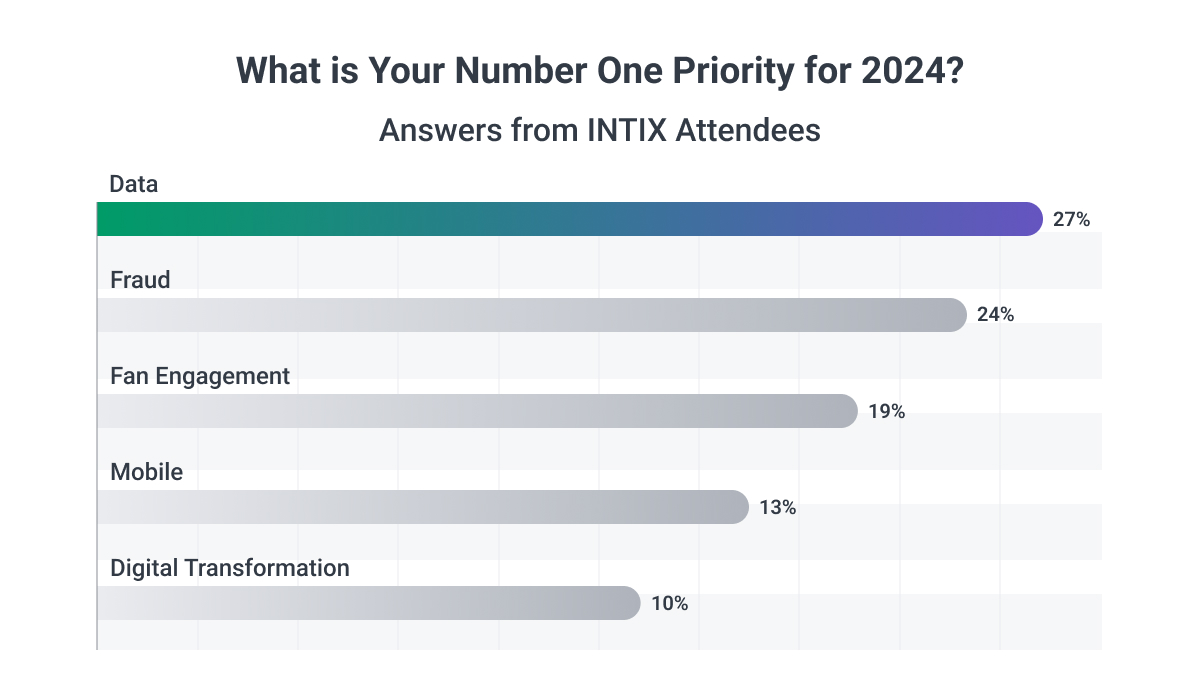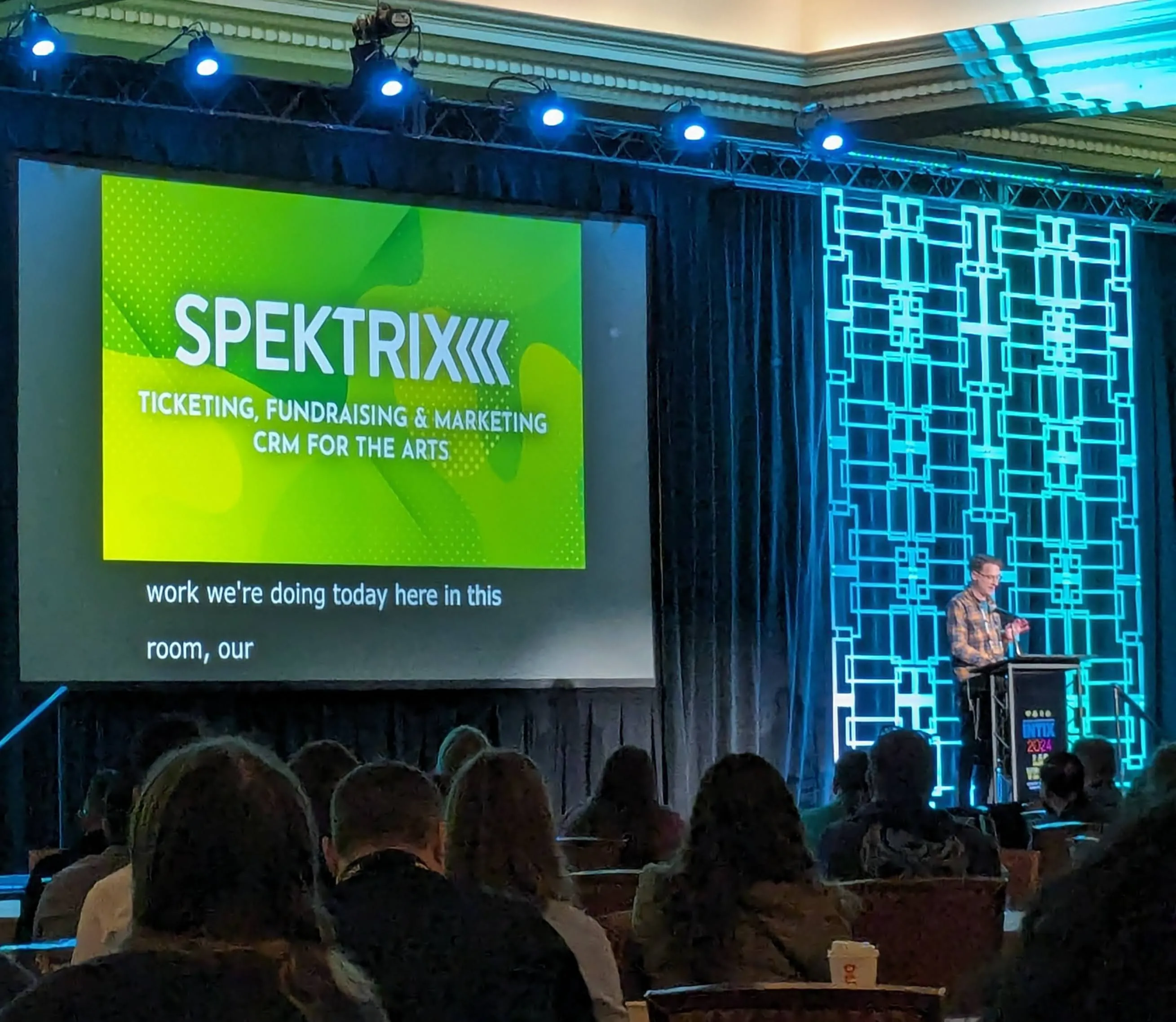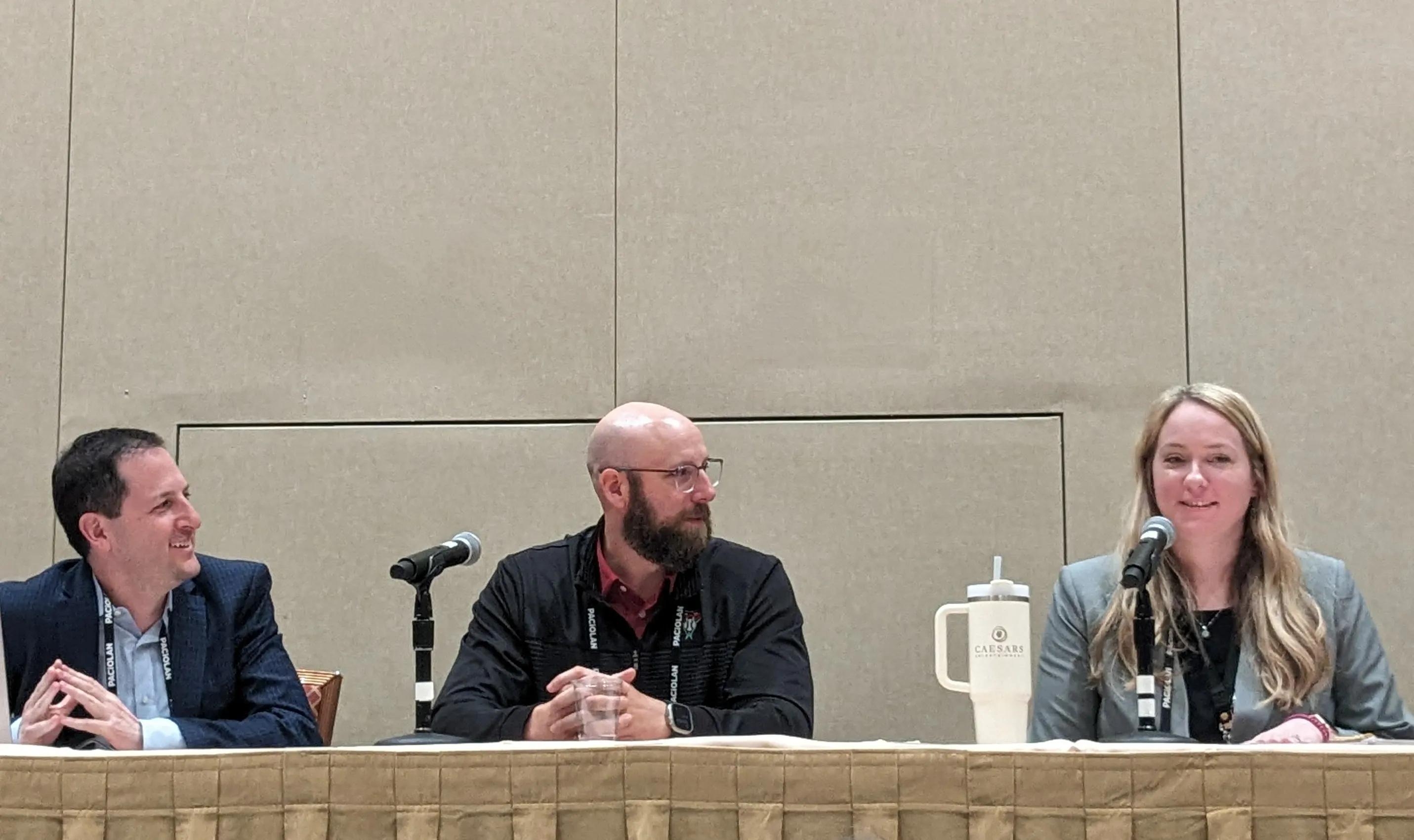In a world where audience behaviors are rapidly evolving, the ticketing industry stands at the forefront of significant change and opportunity.
The COVID-19 pandemic has catalyzed shifts in consumer preferences, leading to a decline in subscriptions, rapid technological advancements, an increased capacity for data utilization, and heightened challenges in fraud prevention.
Yet, amidst this sea of change, the fundamental excitement that ticketing brings—a "passport to an exciting moment, a special time with your family or friends," as eloquently stated by Sandra Douglass Morgan, President of the Raiders, during her opening keynote—remains undiminished.

With a record-breaking 1400+ attendees, INTIX 2024 in Las Vegas felt like a “passport to an exciting moment”, as leaders in ticketing shared insights on adapting to major shifts in the industry. After an insightful week of hearing from some of the brightest in the industry, we’ve narrowed down our top takeaways from this year’s conference.
Data is #1 Priority
In today's ticketing industry, data has emerged as the cornerstone of strategic decision-making and customer engagement. As audiences become increasingly sophisticated, the ability to collect, analyze, and act upon data is paramount.
In the opening session, Michael McDermott, the USA General Manager of SECUTIX, polled the entire INTIX audience and found that ‘Data’ was the attendees’ number one priority for 2024, closely followed by fraud.

This sentiment was echoed by Doug Lyons, SVP of Marketing & Communications at Leap Event Technology, who stressed the importance of engaging customers in authentic, trustworthy manners to facilitate the voluntary sharing of information.
Lyons suggested forgoing cumbersome surveys in favor of more subtle data collection methods, such as geofence event marketing or gamification, which can enhance the customer experience while gathering valuable insights.
This approach to data collection enables companies to personalize marketing efforts, tailor cross-selling opportunities, and ultimately, deliver a superior fan experience. By understanding customer preferences and behaviors, ticketing companies can create more meaningful and memorable engagement.
The challenge, however, lies in effectively managing and analyzing vast amounts of data, ensuring privacy and security, and turning insights into actionable strategies, such as predictive analytics in ticketing. The potential rewards of prioritizing data are immense, leading to more nuanced customer relationships and stronger loyalty.

Think Outside the Ticketing Box
The call to innovate within the ticketing industry has never been louder. Tom Nolan, the Head of Global Ecosystem at Spektrix highlighted a common pitfall: the tendency to look inward for software solutions rather than exploring outside the ticketing sector.
This inward focus can limit the adoption of innovative technologies that could revolutionize ticketing processes and customer experiences. By examining the practices of fintechs and other innovative industries, ticketing companies can discover new technologies to improve pricing, engagement, and security.
Incorporating technologies from outside the industry not only introduces fresh perspectives but also drives competitive advantage. Gamification, for instance, can transform the ticket purchasing process from a transactional experience into an engaging, enjoyable activity, thereby increasing customer satisfaction and loyalty.
Interactive mobile experiences, such as physical/digital scratch-to-win games, have proven to engage users effectively, leading to a significant increase in fan entries and participation (up to 5x more engagement!). These strategies not only enhance the event experience but also open new avenues for data collection and personalization, further enriching the customer journey.
The message is clear: to stay ahead, ticketing companies must broaden their technological horizons and embrace innovation.

Year-Round Engagement & Personalization
Fan engagement and personalization stand at the forefront of creating lasting relationships with ticket buyers. Moving beyond mere transactional interactions, the goal is to maintain communication with customers throughout the year, fostering a sense of loyalty and anticipation for upcoming events.
Joel Steel, the CEO of Komo Technologies, highlighted the importance of providing relevant information and experiences to customers continually, which in turn, supports long-term buying behaviors.

Moreover, engaging younger generations and creating "Instagrammable" moments, as Marianne Banister, CEO of Banister Media, suggested, can significantly enhance the appeal of live events. By crafting experiences that resonate on social media, ticketing companies can leverage the power of digital word-of-mouth, attracting a broader audience.
Personalization, fueled by the strategic use of data, enables the delivery of targeted communications and offerings, ensuring that every interaction feels bespoke and valuable.
Connected Tech Stack, Mobile First
Acknowledging the ubiquity of mobile technology is crucial for the evolution of ticketing strategies. The shift towards a mobile-first approach is not just about adopting new technologies but about rethinking the entire customer journey to make it seamless and integrated.
Providing free WiFi at venues, supporting mobile payments, and offering digital rewards are just the beginning. Joel Steel of Komo Technologies emphasized the importance of a connected tech stack that supports a frictionless experience for users, from discovery and purchase to the event day and beyond.

Cybersecurity Strategies Should Start With Prevention
With the increasing digitization of ticketing processes, cybersecurity has emerged as a critical concern. Robert Tarleton, CIO of Double Eagle Consulting, underscored the importance of prevention as the cornerstone of a robust cybersecurity strategy.

Modernizing systems, conducting regular vulnerability scans and penetration testing, and implementing advanced endpoint protection are essential steps in safeguarding against cyber threats.
The rise in sophisticated cyber attacks necessitates a proactive approach, where regular assessments, real-time detection and monitoring, the adoption of next-generation firewalls, and digital transformation of ticketing systems can significantly mitigate risks. Educating customers and staff about cybersecurity measures and encouraging the use of secure practices, such as multi-factor authentication, also plays a vital role in the overall security posture of the ticketing ecosystem.
.jpg)
Fraud Detection Grows More Advanced
The digital evolution of ticketing has brought with it a rise in fraudulent activities, challenging both event organizers and consumers. Mandi Grimm, Director of Fraud Prevention at Etix.com, and Holly Sandberg, Director of Trust & Safety at Reverb, underscored the growing threat of e-commerce fraud within event ticketing.
They provided an overview of the common fraud types—ranging from sophisticated bot attacks to various forms of payment fraud—and emphasized the importance of strategic measures to combat these issues effectively.
.jpg)
Jennifer Hughes from Queue-it highlighted that ticket bots, which constitute a significant portion of traffic on ticketing sites, not only inflate operational costs but also damage customer loyalty and fairness in ticket sales.
The presentations stressed the necessity of distinguishing between fraud and abuse, employing advanced tools for detection, and the benefits of technologies like 3DS in fraud prevention. Collecting and analyzing customer data was also mentioned as a critical strategy in identifying and mitigating fraudulent transactions.
.jpg)
Seamless Access Control
Access control has transformed, with technology like facial recognition and digital tickets leading the way towards more secure and convenient entry methods. In the presentation ‘How to Survive 125 Years in the Ticketing Industry’, Evan Gitomer, Josh Simon, and Lindsay Radic shared their experiences with implementing such technologies, highlighting the benefits of forcing a shift to digital tickets for enhancing event security and attendee convenience.
The discussion extended to the importance of adopting biometrics and facial recognition for a seamless and hands-free fan experience, pointing out that initial reluctance fades as users acclimate to new technologies.
Many of our clients, including Ticombo, Ticketbud, 123 Tix, Ticket Pro, and Project Admission have worked with Softjourn to create high-quality access control applications that provide a frictionless and easy fan and staff experience while saving time and money in app development.

A panel featuring experts from the Xcel Energy Center, Oak View Group, Ticketmaster, Janam Technologies, and Penn State discussed future-proofing access control investments. They also emphasized the adoption of facial recognition and biometrics as keys to smooth entry processes, suggesting that these tools are becoming increasingly essential for event organizers.
Strategic Accessibility and Inclusion
Dani Rose, Managing Director of Art-Reach, brought attention to the crucial aspect of accessibility and inclusion within the ticketing industry. Highlighting customer service as the initial point of interaction with guests, Rose advocated for the implementation of policies, practices, and procedures that prioritize the inclusion of people with disabilities.
Being "Access Champions" involves creating a welcoming environment for all attendees, ensuring that ticketing and event experiences are accessible to everyone, regardless of their physical or cognitive abilities.

Final Takeaway
Reflecting on Futurist Garry Golden's insights from the Closing Keynote, "Ticket to Tomorrow: Imagining the Future of Event Experiences," it's clear the future of ticketing is ripe with potential.
Golden highlighted how advancements in AI and changing consumer expectations will shape ticketing, emphasizing the need for the industry to evolve while maintaining the excitement of live experiences. His vision encourages us to think beyond current challenges, envisioning a future where innovation, security, and inclusivity redefine how we connect with events.
INTIX 2024 underscored the importance of embracing new technologies and strategies for combating fraud while ensuring accessibility for all fans. As we navigate this journey, the collective wisdom of industry leaders points us towards a future where ticketing continues to offer a passport to unforgettable moments, enriched by the advancements that lie ahead.















